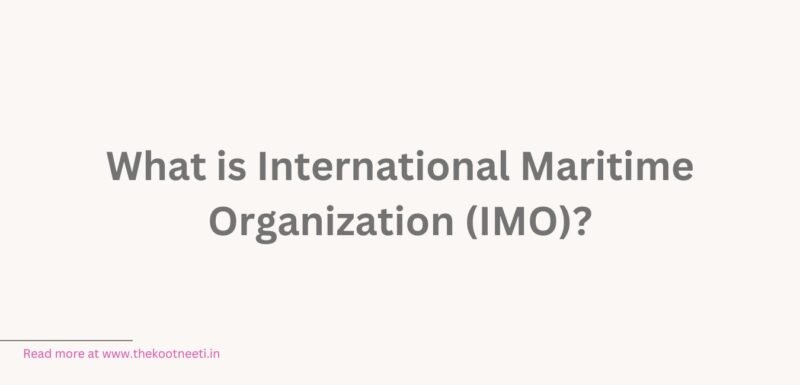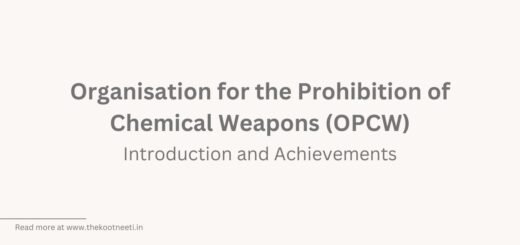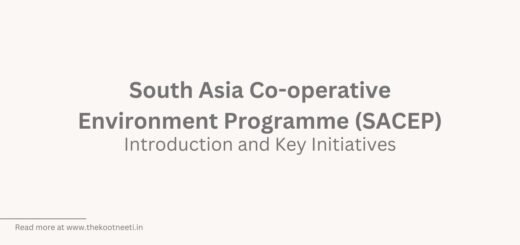International Maritime Organization

The International Maritime Organization (IMO) is a United Nations agency that is responsible for promoting safe, secure, and environmentally-friendly shipping and the prevention of marine pollution from ships. The IMO was established in 1948, and it has member countries from all regions of the world. The organization’s headquarters are located in London, United Kingdom.
The IMO has a number of key functions, including:
- Developing and promoting international maritime standards: The IMO develops and promotes international conventions, standards, and regulations that govern the shipping industry. These standards cover a range of areas, including safety, security, the prevention of marine pollution, and the training and certification of seafarers.
- Providing technical assistance and capacity building: The IMO provides technical assistance and capacity building to member countries to help them implement and enforce international maritime standards and improve the safety and environmental performance of their shipping industries.
- Conducting research and analysis: The IMO conducts research and analysis on maritime-related issues and produces reports and publications on topics such as shipping safety, the prevention of marine pollution, and the impact of shipping on the environment.
- Promoting international cooperation: The IMO works with member countries and other organizations to promote cooperation and dialogue on maritime-related issues.
Key international maritime standards by IMO
The International Maritime Organization (IMO) has developed and promoted a number of international maritime standards that govern the shipping industry. Here are a few examples of these standards:
- The International Convention for the Safety of Life at Sea (SOLAS): This convention sets out minimum safety standards for the construction, equipment, and operation of ships, and it is widely considered to be the most important of all the IMO’s conventions.
- The International Convention for the Prevention of Pollution from Ships (MARPOL): This convention sets out measures to prevent pollution from ships, including regulations on the discharge of oil, sewage, and other harmful substances.
- The International Convention on Standards of Training, Certification and Watchkeeping for Seafarers (STCW): This convention sets out standards for the training and certification of seafarers, and it also establishes requirements for the hours of work and rest of crew members on ships.
- The International Convention on Load Lines (LL): This convention sets out rules for the assignment of minimum freeboards (the distance from the waterline to the main deck) to ships, based on their size, type, and intended service.
These are just a few examples of the many international maritime standards that have been developed by the IMO. The organization has also developed a number of other standards that cover a wide range of maritime-related issues, including ship
IMO capacity building programs
The International Maritime Organization (IMO) provides a range of technical assistance and capacity building programs to its member countries to help them implement and enforce international maritime standards and improve the safety and environmental performance of their shipping industries. Here are a few examples of IMO capacity building programs:
- The IMO’s Integrated Technical Cooperation Programme (ITCP): This program provides technical assistance and capacity building to member countries in areas such as shipping safety, the prevention of marine pollution, and the training and certification of seafarers. The ITCP is funded by the IMO and other donors, and it aims to support the development of national and regional capacities in the maritime sector.
- The IMO’s Global Integrated Shipping Information System (GISIS): This system is a web-based platform that provides information and tools to support the implementation and enforcement of IMO conventions and standards. GISIS includes a range of resources, such as guidance documents, model regulations, and training materials, that are designed to help member countries improve the safety and environmental performance of their shipping industries.
- The IMO’s Marine Environment Protection Committee (MEPC): The MEPC is a technical committee of the IMO that is responsible for the development and implementation of measures to prevent and minimize marine pollution from ships. The MEPC provides technical assistance and capacity building to member countries to help them implement and enforce international maritime standards on pollution prevention.


















